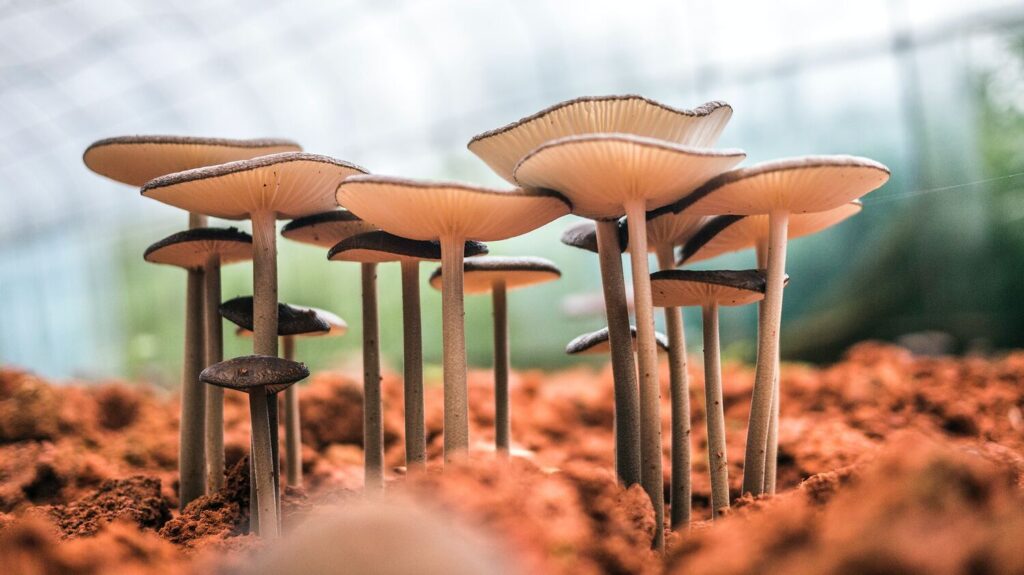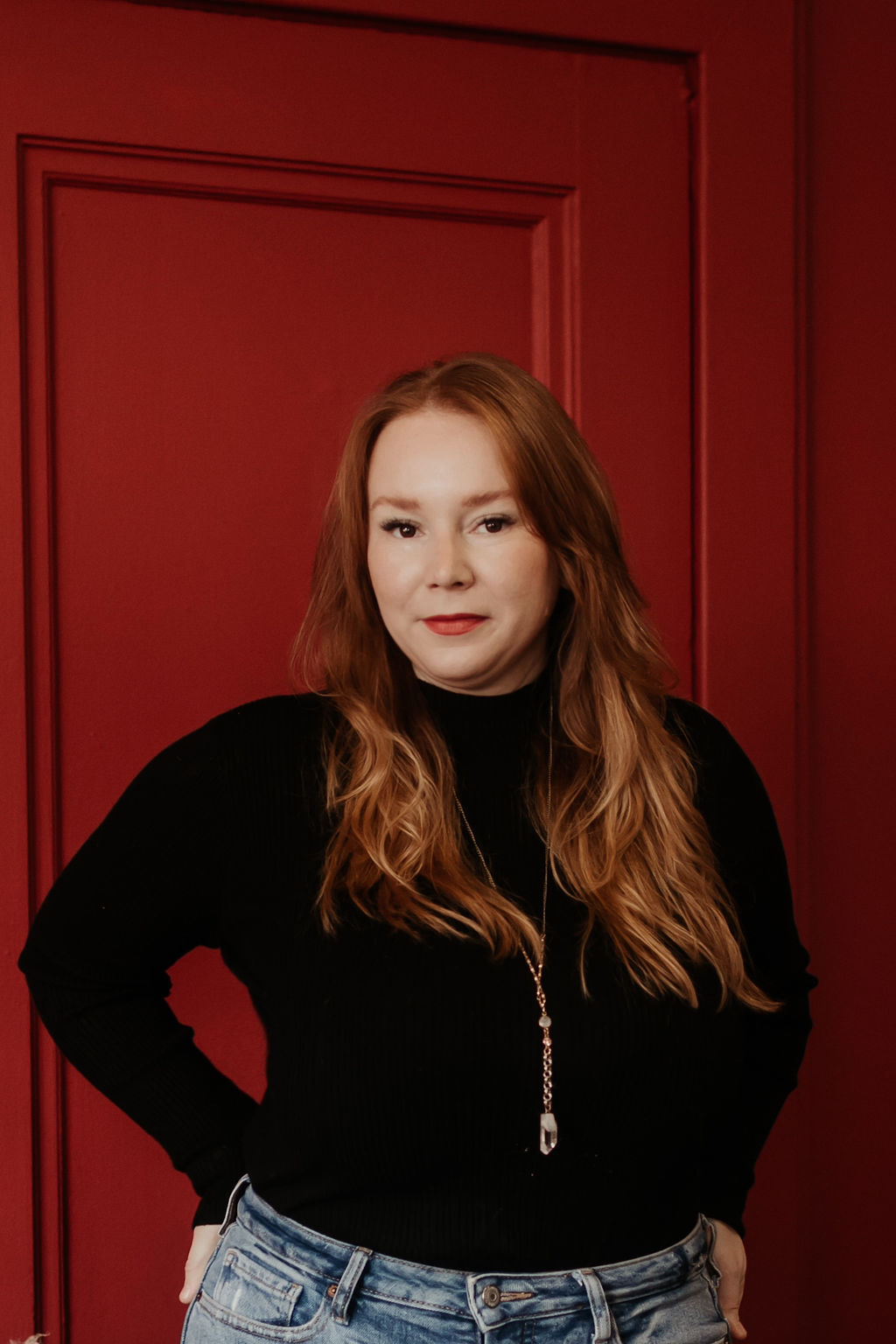For those taking hold of their own mental health journey—sans Western doctors and a pharmaceutical prescription—the word “microdosing” is ubiquitous.
Microdosing, referring to the use of psychedelic hallucinogens such as psilocybin in small doses (about 1 per cent of an active dose, according to a study in the Journal of Psychopharmacology), is popular among mental health advocates and patients, as well as recreational users.
“[Mushrooms are] a tool in the toolbox, [but] they’re definitely not going to fix your whole house in isolation,” says Stephanie Dacre, a mycology researcher and enthusiast who was first introduced to the world of mushrooms while working in a remote wilderness resort.
Dacre’s educational background is in therapy, but she decided to buck the vocation in favour of educating on the benefits of mushrooms—and not just the magical kind.
“You can access psychedelics pretty easily in this day and age but, in contrast, you can’t access education on psychedelics as easily as you can actually access the compounds, which is such a massive issue,” she says. “I think these compounds will always be found and secured by people who want to get them, so I think, realistically, we need to have some type of education, support, and integration therapy.”

For those who are not-so-determined to take it into their own hands—those who perhaps benefit from traditional modes of therapy—there are doctors who practice in controlled psychedelic-assisted therapy.
Dr. Devon Christie is one of them.
“Trauma is at the root of so many things, and this is such a promising treatment for trauma,” says Dr. Christie, who practices out of Numinus, an integrated mental health company that facilitates the research and development of safe, evidence-based, accessible psychedelic-assisted psychotherapy. Dr. Christie is a family physician and registered therapeutic counsellor, and the medical and therapeutic services director at Numinus.
“We have clients come in with various sorts of presenting concerns. Some folks with more of a trauma or post traumatic stress history, some folks with depression or depression and anxiety history, some with substance use disorder history,” she says.
In Dr. Christie’s practice, she and a patient get to know each other, establish a therapeutic rapport and trust, and then set intentions for the work together.
One of her modalities is to deliver therapy using ketamine, MDMA, or psilocybin with a large enough dose that it produces an altered state of consciousness, but not so much that it is an anesthetic. The sessions are about two and a half hours long, and take place in private rooms at the Numinus clinic. Depending on the patient, these sessions would continue once weekly followed by integration and talk therapy.
This form of therapy may be completely foreign for some, but psychedelic-assisted therapy has been a crucial tool for many folks suffering from otherwise treatment-resistant depression, PTSD and other traumas. The conversation has blown up on platforms like TikTok, with patients candidly sharing their experience exploring this alternative method of mental healthcare.

“It takes about 20 years for a scientifically proven intervention to have widespread uptake in the public system. That’s a long time,” she says, noting that she’s hoping to make that process move quite a bit faster through her work with the Multidisciplinary Association for Psychedelic Studies (MAPS), a non-profit organization that supports equitable access to legal and regulated psychedelic medicine for all Canadians.
“Maybe people were stuck with what they were offered, whether that be antidepressants, or more traditional modes of therapy like cognitive behavioral therapy,” Dr. Christie says, backing up this lesser-utilized therapy.
Such practices are approved through the Special Access Program, in which doctors and other health care professionals can request access to drugs that are otherwise considered illicit. Approval for access is contingent on whether the patient is considered to have “serious or life-threatening conditions,” and that treatment with conventional therapies has failed.
“Every case is different, but I do find that with every person I work with, there’s some really meaningful insights,” says Dr. Christie.
“They’ve shifted how they relate to their experience, not just gotten rid of symptoms that they didn’t want anymore.”
And potential users of the therapy are hoping for the same.
“[Psychedelic-assisted therapy] is something I would love to do,” Dacre reveals, but she knows it’s not without its barriers.
This modality may work for some patients—the ones fortunate enough to be greenlit through the Special Access Program—but it proves to be high barrier for others who could otherwise benefit from it.
“It’s very difficult right now to access [the therapy], not just because of the ability to get the medicine, but also just financially,” says Dacre.
“Ketamine-assisted therapy is something that is a lot easier to access than say, psilocybin or another psychedelic but… when I looked into it, it was still over $5,000 for the whole package. From an accessibility lens, this is a huge issue.”
Nation-wide, psilocybin is still illegal to buy, produce or sell, although Health Canada acknowledges there’s interest and demand for “potential therapeutic uses of magic mushrooms and of psilocybin.”
Without access to a clinical trial, users will continue to purchase magic mushrooms illegally.
By April 2022, 200 patients had been treated with psychedelic-assisted therapy through MAPS’ Roots to Thrive program, but more than 800 people were on the waiting list for a 12-week, ketamine-assisted group therapy program.
Still, the benefits of psychedelic therapy—prescribed or otherwise—are uncontested.
“I’ve really found over the years with psychedelics that these medicines can catalyze altered states of consciousness that, when done in a safe and supportive way, can be tremendously beneficial to actual healing,” says Dr. Christie.




